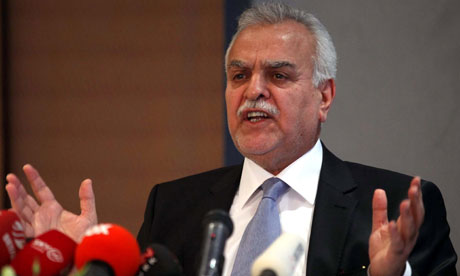By Emilee Gaebler
Impunity Watch Reporter, Europe
WARSAW, Poland – After over 70 years of silence regarding Soviet culpability in the Polish Katyn massacre of 1940, the United States has indirectly acknowledged the cover up they participated in. Documents released on Monday show that the United States was aware, at a very early point, that the Soviet claim of the massacre being the work of the German Nazi’s, was false.

In May of 1943, British and American POW’s were taken into the Katyn forest by their German captors and shown a mass grave site in a clearing. The grave contained the bodies of close to 22,000 Polish high-ranking officers. The men had been the educated elite of Poland in their civilian lives: doctors, lawyers, teachers and other professionals. They had all been shot in the back of the head and dumped into the mass graves. Stalin’s secret police, the NKVD, had killed them to eliminate public challenges to Stalinism.
Objects, like correspondence, ID cards, and newspaper clippings that were recovered from their bodies were dated from 1940 and earlier. The uniforms that were still on the corpses were in new condition, hardly worn or used at all. The bodies were in a partly mummified state and showed signs of advanced decay; all of this pointing to the reality that these bodies had been in the grave since 1940 or earlier
The Katyn forest was in the control of the Soviets until the Germans were able to gain control of it in 1941. American officers, Captain Donald B. Stewart and Lieutenant Colonel John H. Van Vliet Jr., were among the POW’s taken to the site of the Katyn massacre. Included in the roughly 1,000 documents released on Monday are coded messages sent by the two men, while still in captivity, that state their belief that the German claim that the massacre was done by the Soviets was true.
In 1951-1952 Congressional hearings were held regarding the Katyn massacre. Both Stewart and Van Vliet testified at these but the record of the hearings does not reflect these coded messages from 1943, suggesting they were deliberately excluded. As well, Van Vliet wrote two reports on the massacre, one in 1945 and one in 1950 but neither of them were part of the hearings or released by the United States government at any point.
Experts believe that the truth regarding responsibility for the Katyn massacre was deliberately withheld in 1943 by President Theodore Roosevelt to maintain the alliance between the two countries against Germany. Following the end of the war the truth remained hidden to keep Cold War tensions down.
In 1990, during the fall of the Iron Curtain, the last head of state of the Soviet Union Mikhail Gorbachev, finally admitted to the Soviet guilt in the massacre. Even then, the United States government refused to admit to their participation in the cover-up. United States historian and author of a Katyn massacre book, Paul Allen, believes that a public apology to the Polish people is required as Katyn remains a wound on the Polish psyche that to this day affects Polish and Russian relationships.
For further information, please see:
BBC News – US “Hushed up” Soviet Guilt Over Katyn – 11 September 2012
The Moscow Times – Secret Memos Show U.S. Hushed up Katyn Crime – 11 September 2012
Polskie Radio – Veterans Attend Release of US Katyn Documents – 11 September 2012
The Telegraph – US “Hushed up Katyn Massacre” – 11 September 2012
Associate Press – AP Exclusive: Memos Show US Hushed up Soviet Crime – 10 September 2012



